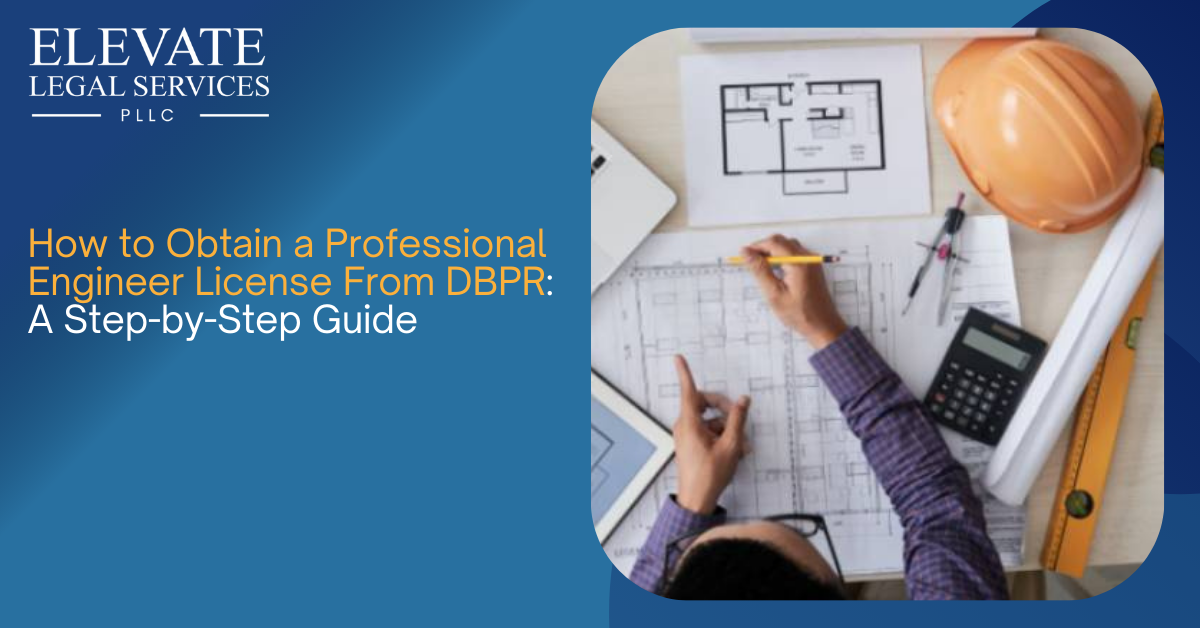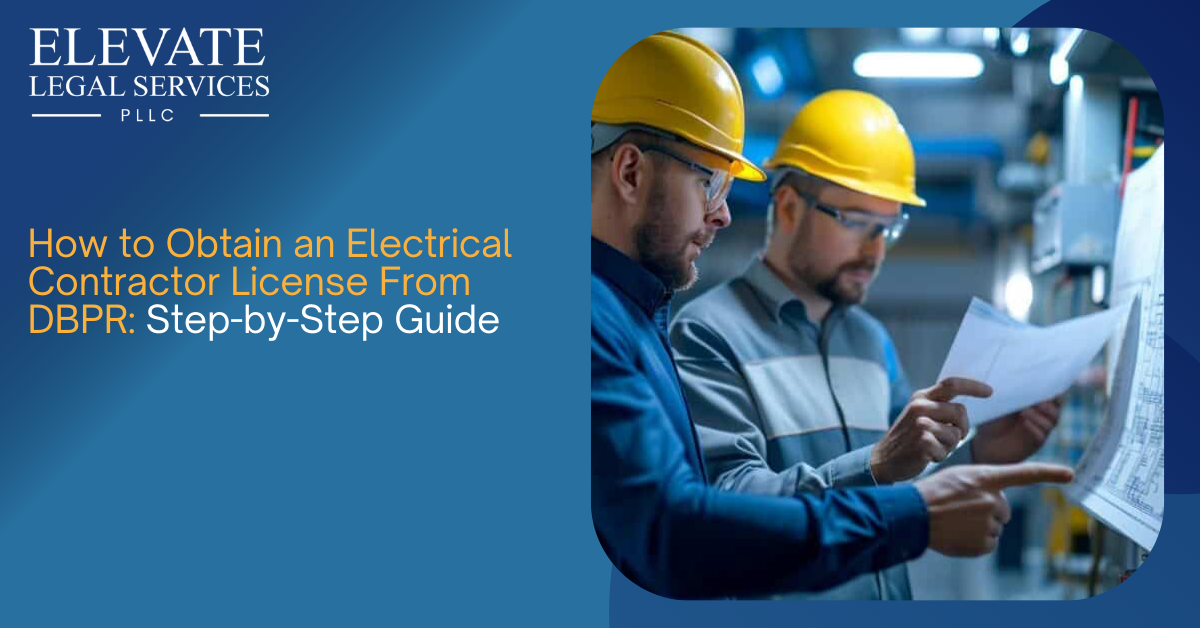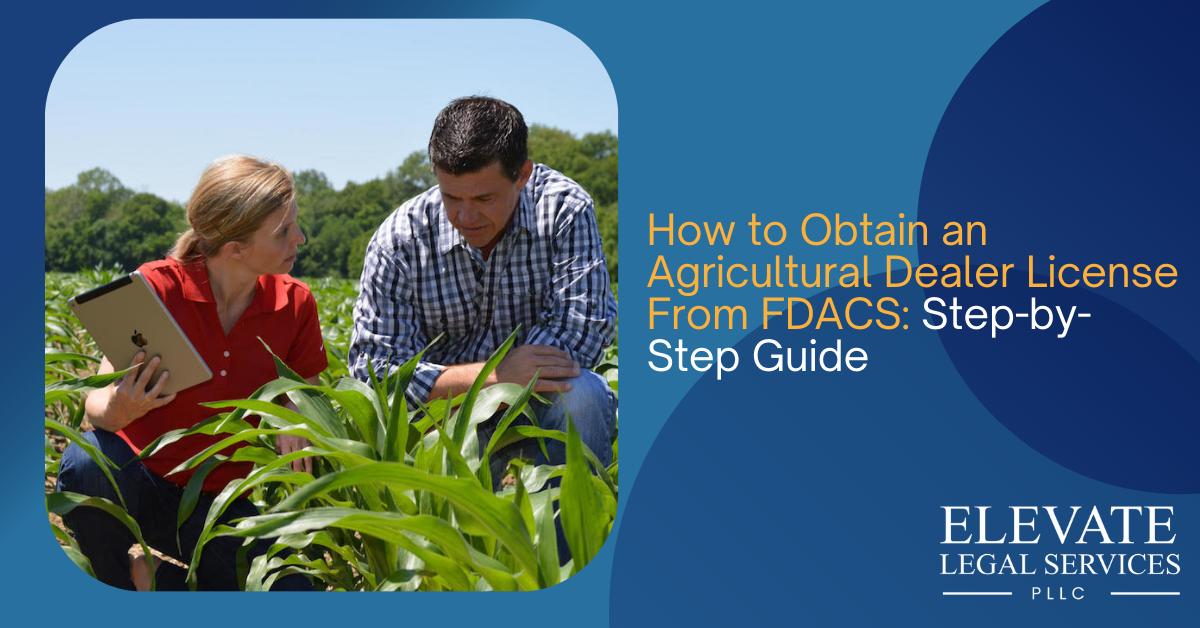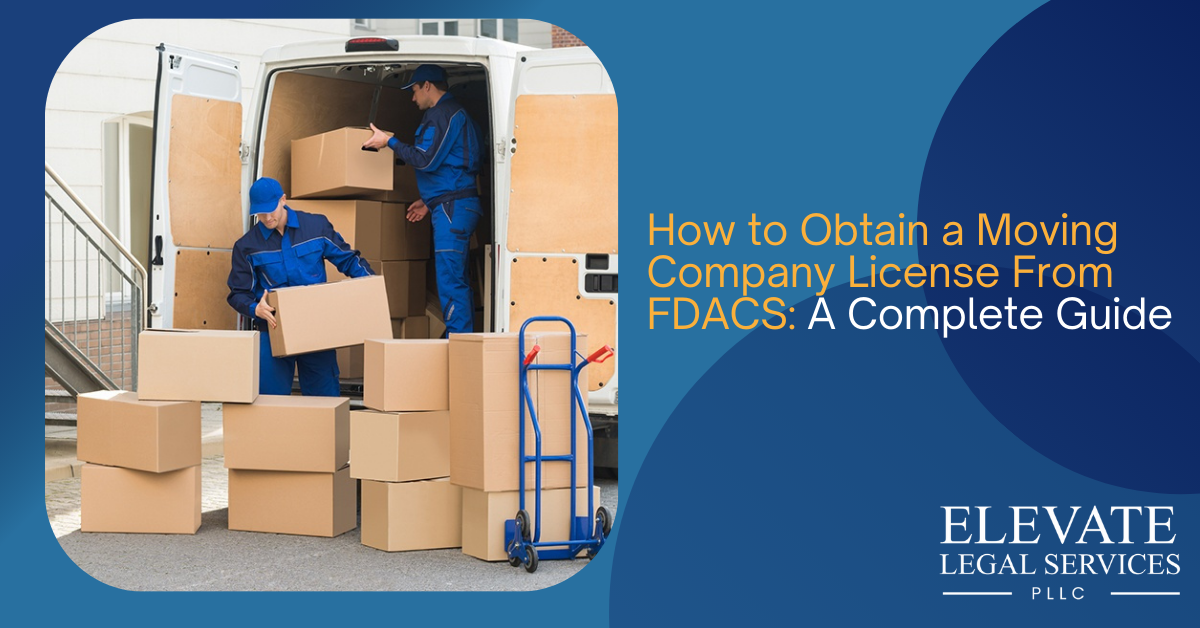
Operating a moving company in Florida requires proper licensing to ensure compliance with state regulations and build customer trust. The Florida Department of Agriculture and Consumer Services (FDACS) manages the registration and licensing of moving companies under the Household Moving Services Act (Chapter 507 of the Florida Statutes). This guide explains step-by-step how to secure your moving company license.
At Elevate Legal Services, PLLC, we specialize in helping businesses navigate FDACS licensing requirements and defending against administrative complaints. If you’re facing challenges with your application or compliance, call us at 561-770-3335 or email [email protected] for expert legal guidance.
Why Moving Companies Need an FDACS License
A valid FDACS license is mandatory for businesses transporting household goods within Florida. Licensing ensures:
- Consumer Protection: Prevents unethical practices and protects customers’ belongings.
- Compliance: Verifies that your business meets Florida’s legal and financial responsibility standards.
- Operational Legitimacy: Avoids fines, penalties, or potential legal actions against unlicensed operators.
Step-by-Step Guide to Obtaining Your Moving Company License
Step 1: Register Your Business
Before applying for an FDACS license, your company must be properly established:

- Business Registration:
- Register your business name with the Florida Division of Corporations.
- Obtain an Employer Identification Number (EIN) from the IRS for tax purposes.
- Choose a Business Structure:
- Select the appropriate structure, such as a sole proprietorship, LLC, or corporation.
Step 2: Secure Required Insurance
FDACS mandates two key types of insurance for moving companies:
- Liability Insurance:
- Covers potential damage to customers’ belongings.
- Meet or exceed the minimum coverage amounts specified under Chapter 507.
- Workers’ Compensation Insurance:
- Required if you employ movers or other staff.
- Provides coverage for workplace injuries or illnesses.
Step 3: Obtain a Surety Bond or Certificate of Deposit
Demonstrate financial responsibility by providing one of the following:
- Surety Bond: A $25,000 bond guarantees compensation for customers in cases of negligence or damage.
- Certificate of Deposit: An alternative to a bond, ensuring financial accountability.
Step 4: Submit Your Application to FDACS
Complete the Household Moving Services application available online or by mail. Include:
- Business Details:
- Company name, address, and contact information.
- Proof of Insurance:
- Attach certificates for liability and workers’ compensation coverage.
- Financial Responsibility Documentation:
- Provide the surety bond or certificate of deposit.
- Fee Payment:
- Pay the application fee, which varies based on business size and type.
Submission Options: Applications can be filed via the FDACS online portal or mailed to their office.
Step 5: Prepare for FDACS Inspection
FDACS may inspect your business before issuing a license. During the inspection, ensure:
- Compliance With Contract Standards: Your contracts and pricing adhere to Florida law.
- Operational Transparency: Documentation such as receipts and contracts are accurate and customer-friendly.
- Insurance Coverage: Proof of valid insurance is readily available.
Step 6: Receive Your License
Once your application is approved and inspections are cleared, you’ll receive your FDACS license. Display the license prominently at your office and in marketing materials.
Step 7: Maintain Compliance
After obtaining your license, ongoing compliance is critical:
- Annual Renewal:
- Update insurance and financial documentation annually.
- Pay the renewal fee on time to avoid penalties.
- Record-Keeping:
- Maintain detailed records of contracts, pricing, and customer transactions for at least three years.
- Consumer Protection Compliance:
- Provide clear, written contracts outlining terms, conditions, and pricing.
- Update FDACS:
- Notify FDACS of any significant changes to your business (e.g., address, ownership, or services).
Common Challenges During Licensing
Applicants often face:
- Incomplete Applications: Ensure all required documents, such as proof of insurance and financial guarantees, are included.
- Inspection Deficiencies: Address any issues identified during the FDACS inspection promptly.
- Difficulty Securing Bonds: Work with a reputable financial institution or bonding agency for assistance.
At Elevate Legal Services, PLLC, we help businesses navigate these challenges efficiently. For support, call us at 561-770-3335 or email [email protected].
Why Choose Elevate Legal Services, PLLC?
Navigating the FDACS licensing process can be complex, but we make it easier by offering:
- Expert Guidance: Step-by-step assistance with applications, inspections, and compliance.
- Legal Representation: Defense against administrative complaints or violations.
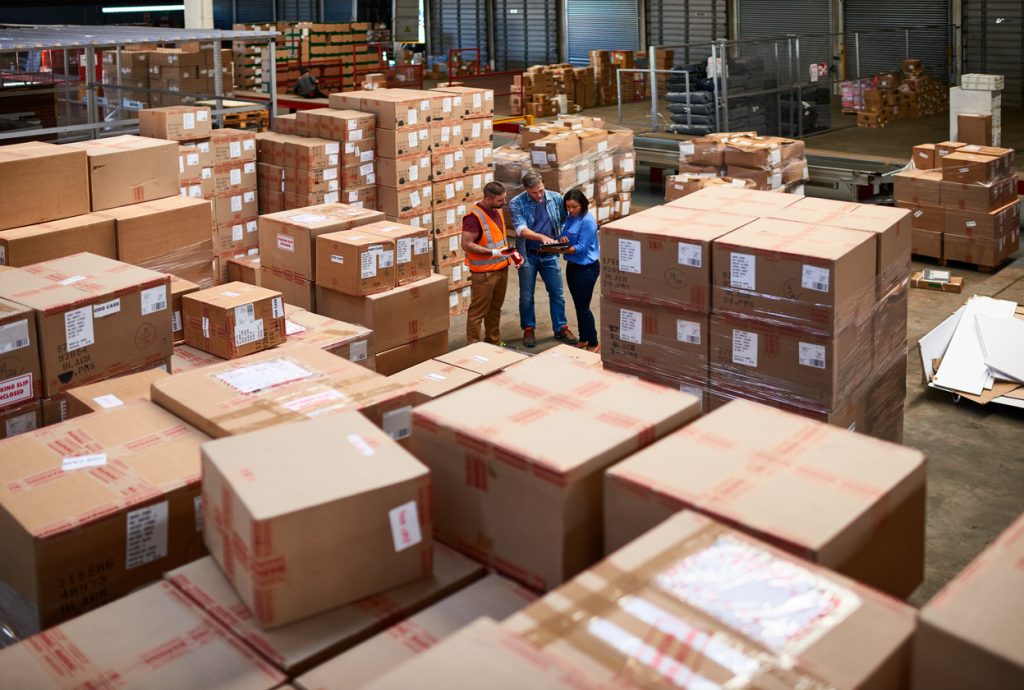
- Personalized Support: Solutions tailored to your business needs.
Contact us at 561-770-3335 or email [email protected] for assistance with licensing or compliance issues.
Conclusion
Obtaining a moving company license from FDACS is essential for operating legally and building customer trust. By following these steps—registering your business, securing insurance and financial guarantees, submitting a complete application, and maintaining compliance—you can ensure a successful and legally compliant moving business.
For help navigating the licensing process or addressing FDACS compliance challenges, trust Elevate Legal Services, PLLC. Call us at 561-770-3335 or email [email protected] to get started today. Let us help you lay the foundation for a successful moving company.


